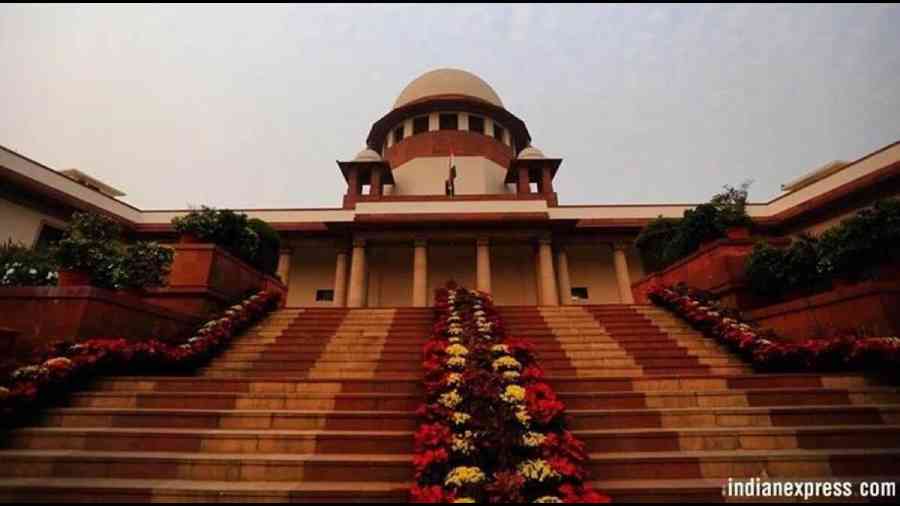The Centre told the Supreme Court on Tuesday a new data protection bill is ready and will be introduced in the Monsoon session of Parliament in July as the apex court heard a matter related to privacy concerns of social media users.
Attorney-general R. Venkataramani told a constitution bench headed by Justice K.M. Joseph the bill will address all the concerns raised in the present petitions.
The monsoon session of Parliament commences in July and extends up to August each year.
The bench, also comprising justices Ajay Rastogi, Aniruddha Bose, Hrishikesh Roy and C.T. Ravikumar, took note of the submission and directed that the matter be placed before Chief Justice D.Y. Chandrachud so that a new bench can be constituted as Justice Joseph is set to retire on June 16.
The matter has been posted for hearing in the first week of August 2023.
Senior advocate Shyam Divan, appearing for the petitioners, submitted the court should not link the court hearings to the legislative process as the court was told on three previous occasions that the bill on data protection is likely to be passed.
The legislative process is complex and they may be referred to some committees, he said.
Countering Divan’s argument, Venkataramani said consultation is a continuous process and the bill has gone through a “very qualified consultation process”.
“Don’t say we are taking time. We want a good law to come,” Venkataramani asserted.
The apex court said in its order, “We take note of the submission of the Attorney General that a bill which addresses all the concerns will be tabled in the monsoon session of Parliament commencing July 2023.
“Considering the circumstances, we request theRegistry to place the matter before the Chief Justice sothat a bench can be constituted.”
The apex court was hearing a plea filed by two students — Karmanya Singh Sareen and Shreya Sethi — challenging the contract between WhatsApp and its parent Facebook to provide access to calls, photographs, texts, videos and documents shared by users, calling it a violation of their privacy and right to free speech.










